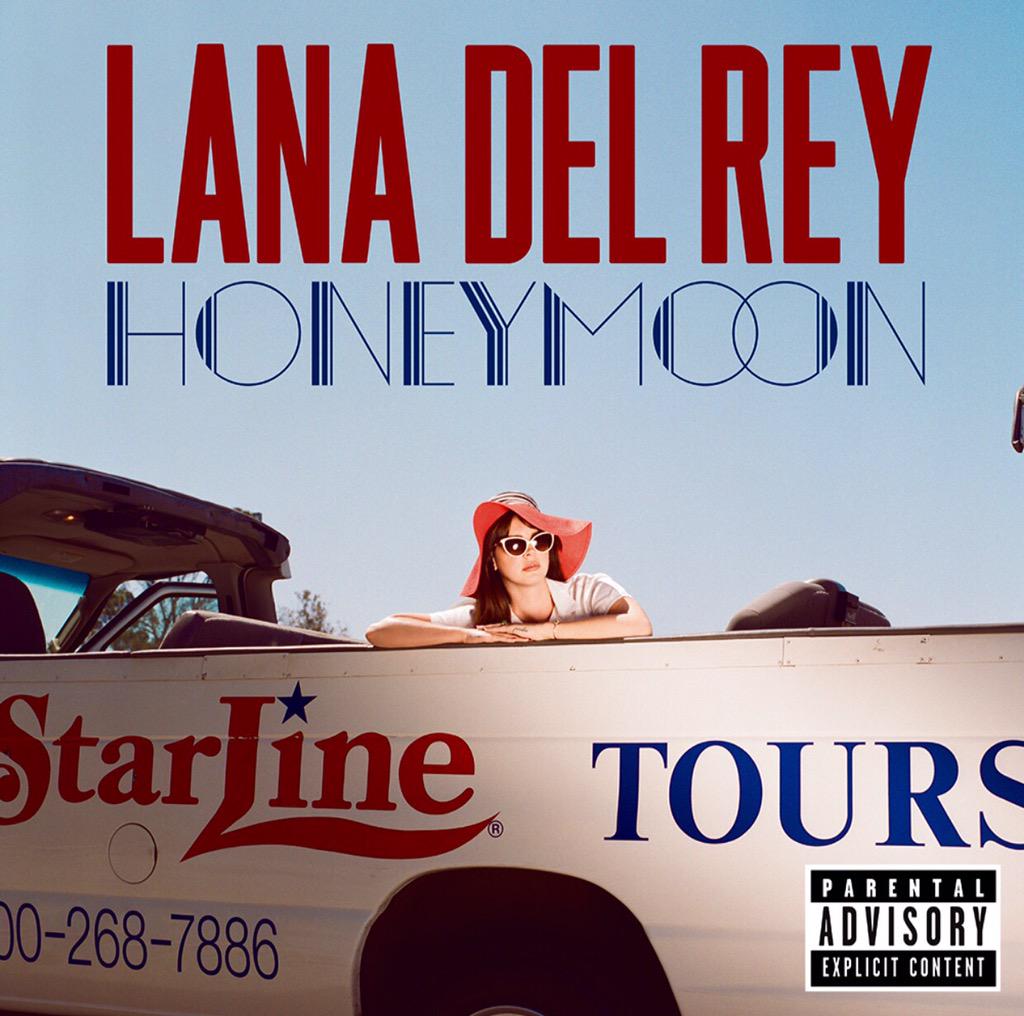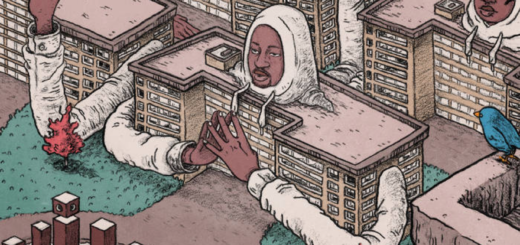HONEYMOON by Lana Del Rey
Genre: Chamber Pop, Art Pop
Favorite Tracks: “The Blackest Day”
A friend of mine made an interesting point the other day; a lot of the artists today who try to create a nostalgic sense of the past do so by singing as softly as possible in an attempt to sound more fragile, far-off, and precious. The funny thing about this technique is that the microphones of the eras these artists are trying to evoke were nowhere near powerful enough to pick up on this style of singing; there had to be some real projection in order to hear anything. I suppose this is what’s always irked me about Lana Del Rey’s far-off, wispy vocal delivery on many of her songs; the softness feels like warped nostalgia for an age that never was. This, combined with a compulsion for superficial, modern pop lyrics has always made Lana Del Rey less than appealing. Her music has always felt like a collection of various Instagram filters laid over a James Dean montage; no doubt there are people who find that idea charming, but this would be a fundamental difference between those people and myself.
HONEYMOON, the newest release from the dream pop star, proves to be an even more mundane offering than Del Rey’s previous releases. The wave of completely interchangeable filler tracks that make up the majority of the record oftentimes even run the exact same length. The second track, “Music to Watch Boys To”, is four minutes and fifty-one seconds, just the same as the third track, “Terrence Loves You”. It happens again between the sixth track “Freak”and the seventh track “Art Deco”, both of which run at four minutes and fifty-five seconds. It seems to be a bizarre choice in some kind of attempt at giving the record a sense of symmetry, but instead only reinforces the record’s homogenized one-note tone; the songs are so similar that they can’t even be bothered to be different lengths.
While ULTRAVIOLENCE and BORN TO DIE indulged in a melodramatic celebration of being a troubled white person who’s sad for no particular reason, HONEYMOON stretches on in a painfully lengthy stretch of very understated, quiet, and vague melancholy. Del Rey is so stoic, and her instrumentation so reserved, that it’s hard to pick out any memorable moments beyond the small lyrical refrains that we’ve come to expect. It’s not that any of it is necessarily bad; it’s music to let drift in the background, but for such an operatic pop star it’s not particularly exciting to hear. Del Rey’s vocal talents are as apparent as ever, but with so little charisma or emphatic delivery, it’s hard to go along for the ride with her.
Perhaps what’s most disappointing is that the record reaches a sudden and dramatic climax way on “The Blackest Day”, a great track buried far too deep to really have an impact. Here, finally, Del Rey lets loose a sense of real anguish and deeply felt emotion, breaking her cool, eggshell facade. The instrumentation also reaches a pitch where it actually becomes audible enough to appreciate the skillful arrangements. As Del Rey pines: “Because I’m going deeper and deeper/Harder and harder/Getting darker and darker/Looking for love/In all the wrong places/Oh my god/In all the wrong places/Oh my god”, her backing musicians spiral down right with her in an absolutely cathartic release. Here, Del Rey’s tragic Zelda Fitzgerald character seems to finally be teetering over the edge, with no man in a classic double-breasted suit ready to catch her. The album as a whole may not be worth listening to, but “Blackest Day” can loop on your Spotify all afternoon, the one track that gets right what the rest of the album couldn’t quite pull off.
Del Rey closes the album with a cover of the powerful standard “Please Don’t Let Me Be Misunderstood”. Listening to it, you can’t help but be reminded of The Animals’ rendition of the song, or Nina Simone’s, making Del Rey’s flaccid interpretation all the more disappointing. Like a lot of her music, she tries and fails to capture a feeling and era she’ll never truly be a part of.
For fans of Lana Del Rey, I cannot recommend RAY GUNS ARE NOT JUST THE FUTURE by indie pop duo The Bird and The Bee enough. It’s a genuinely fun, exciting, and mysterious record, bolstered primarily by singer Inara George’s flighty and distant vocals. It features a lot of the strange, nostalgic melancholy Del Rey tries to create, but Inara accomplishes it with more finesse and depth. There’s nothing wrong with enjoying this style of music, but there’s definitely better versions of it to be found.
Verdict: Do Not Recommend




